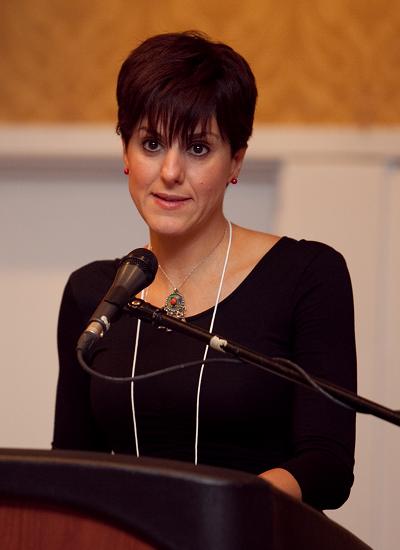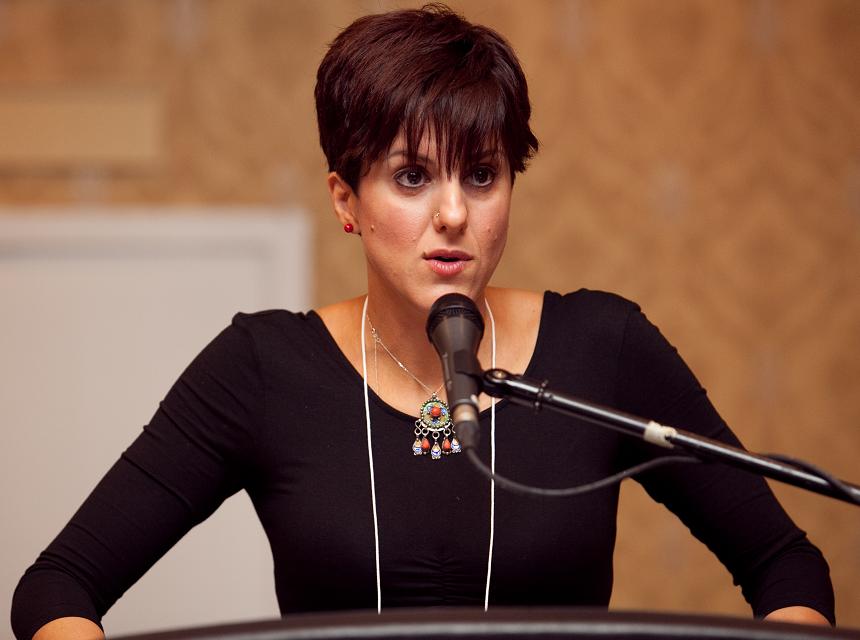
Djemila was born in 1972 in Ukraine, to a Greek Cypriot mother and an Algerian father, both scientists. However, she was raised in Oran, Algeria, where her parents were engaged in social and political causes. From an early age, she was aware of the poor condition of women in that country, but also of their hopes. She became an activist in the Parti de l’avant-garde socialiste (PAGS), to defend the ideals of freedom, equality, and justice alongside leading intellectuals and grassroots supporters.
In the early 1990s, the oppressive Front islamique du salut (FIS) rose to power. The most barbarian crimes became more than just threats. Djemila helped to organise many demonstrations across the country to oppose this movement. However, in 1994, death threats made by the Front islamique pour le djihad armé (FIDA) forced her and her family to flee to Paris. There, she organised groups that fought against the oppression of Algerian women – some of this oppression having reached as far as France itself.
In 1997, she was awarded a scholarship to pursue a Master’s degree at Quebec’s Institut nationale de recherche scientifique (INRS). After that, she went on to pursue another Master’s degree in political science and international rights. During these studies, she also served as the Canadian correspondant for the French-language Algerian newspaper El-Watan.
After the attacks of September 11th, 2001, she visited New York to report on events there. A few months later, she traveled to the Middle-East to interview prominent intellectuals, such as Sadik Al-Azm, Michel Kilo, and Ahmad Zoweil, who won a Nobel prize for chemistry. She also traveled to Cairo, Beirut and Damascus to investigate the rise of Al-Qaida. In August of 2002, Djemila met with Yasser Arafat in his Ramallah headquarters. She also met with Judge Bruguière, a French anti-terrorism specialist who had investigated Montreal terrorist Ahmed Ressam.
During 2003 and 2004, she worked for the Parliament of Canada, becoming familiar with the political and legislative procedures. She currently works for the Canadian government.

Djemila Benhabib at the podium, 2010-10-03
Photograph : F. Ward

Djemila Benhabib at the podium, 2010-10-03
Photograph : F. Ward
Is it reasonable to imagine a separation between Islam and political power? Is it necessary in our modern society? How can such a separation be made? Is it possible, or even desirable? And could such a separation be reconciled with the teachings of the Koran? For the past several decades, arab society was largely secular, as illustrated by the liberation movements in Iraq, Syria, and Palestine (under Fatah). Yet, since the Iranian revolution of Ayatollah Khomeini, the Middle East has fallen under the influence of Islamists. What conditions would be necessary to reverse this trend? There are many possible answers to this question. One answer that we will disregard is that Muslims are genetically inclined towards religion and violence; this is no more logical than claiming that genes for feminism or secularism could have been passed from Julius Caesar to George W. Bush. And after all, what did Pétain and Jaurès have in common? Or Clara Zetkin, Rosa Luxembourg, and Adolf Hitler? Or Gramsci and Mussolini? Ideas and values transcend borders; historically, many ideas were passed from the ancient Greeks, to the Arabs, to the Romans, to the Hebrews, and then into Europe. Both Christianity and Islam can be either conservative or liberal, depending upon the historical and political circumstances.